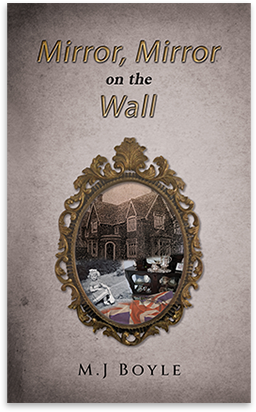
Mirror, mirror on the wall – Review by Oliver Sievering
“Mirror, mirror on the wall" illuminates - illustrated by many internal family conversations - the social transformation of Great Britain from the 1950s until today from the perspective of the author, an English woman living in Europe. The retrospective is, at heart, critical. It holds up a mirror to British society. Many British families will probably find themselves in these dialogues. The author `s aim is for the book to be perceived as a mirror of society over time, to stimulate critical thinking and discourse. This she powerfully achieves through a profound understanding of the nuances of British society and the selected style of presenting her insights.
On the one hand, one would like to think that the transformation of the dialogues described in the book could have taken place in this, or a similar way in other countries, because every country has changed in the past decades, in the views, in religious and social values. On the other hand, one recognizes many unmistakable British peculiarities of royal, religious and socio-political nature as well as the conservative attitudes, which show that these dialogues could only have taken place in Great Britain. Great Britain was proud of its Empire, but this has been crumbling more and more since the end of World War II. The break-up of their world power gnaws at the self-confidence of many Britons, but they try to cling to old glory. This in turn, has an effect on their perception of their national pride.
The book relentlessly exposes the various contradictions.
The United Kingdom joined the EEC in 1973 under the Conservative government of Edward Heath. Never really warming to its role in the EU, there was always a portion of scepticism. The many regulations, the perceived or actual paternalism from Brussels frustrated many countries, but especially the proud English citizenry. So, it is not surprising that the United Kingdom is to date the only member to have left the EU. The referendum was very narrowly in favour of Brexit and showed the deep divisions in British society. Through the Brexit process, Great Britain was led by the divisive Prime Minister Boris Johnson. England has had many strong as well as controversial figures as prime ministers. Many of them did not unify, but rather contributed to the division of the country, which was also reflected within family units.
"Mirror, mirror on the wall” depicts the inner quarrel of British families and citizens over the years.
Post Views : 342